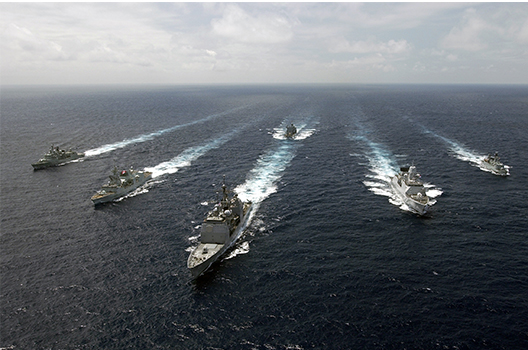NATO has the capacity to win a conventional war in the Baltics, if appropriate steps are taken.
Effective defense of the Baltic nations of Estonia, Latvia, and Lithuania—and deterrence built upon such defensive capabilities—is one of the key challenges facing NATO and its member nations. Russia’s actions, geopolitical rhetoric, and geographic proximity to the Baltics have generated the requirement for a significant defense capability. This report sets forth how such a capability should be achieved, for both conventional and hybrid conflicts. Certain of the capabilities discussed below will also have relevance to issues in NATO’s South, and to resilience for nations throughout the Alliance. As set forth in the report NATO’s New Strategy, however, such considerations are of equal importance to the threat to the Baltics, and require action by the Alliance. NATO, of course, is only one of the West’s possible responses to geopolitical challenges, and the proposals below are therefore intended to fit within the overall international context faced by the NATO nations and their partners. The paper, however, focuses specifically on the Baltic defense challenge. In fact, NATO has the capacity to win a conventional war in the Baltics, even in the face of a short-notice Russian attack—if appropriate steps are taken to provide a substantial defense. Accordingly, to build on steps taken by NATO at the 2014 Wales Summit, by ministers since then, and by the United States under the European Reassurance Initiative (ERI), this paper recommends that NATO should take the following actions.
To respond to the challenge of conventional conflict:
2. Enhance direct defense of the Baltics.
3. Expand forward presence and reinforcement capabilities that will complement the United States’ European Reassurance Initiative.
4. Establish an effective counter anti-access/area-denial capability.
5. Undertake critical planning, to be approved by the North Atlantic Council (NAC).
To respond to the challenge of hybrid war:
6. Create sections and/or designated staff focused on hybrid conflict at NATO headquarters, Allied Command Operations, and Allied Command Transformation.
7. Establish Resilience Support Teams to provide support to nations in conjunction with hybrid conflict.
8. Have nations establish national “Resilience Working Groups” to deal with hybrid aggression and to work with NATO Resilience Support Teams.
9. NATO and its member states need to bolster coordination with the private sector, including a mechanism that joins the military with the private sector, including critical infrastructure.

